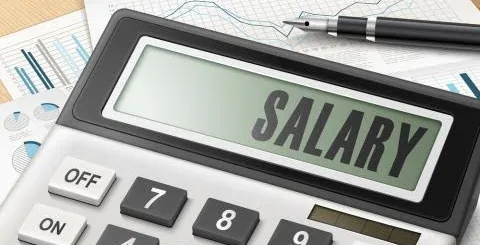New Teachers’ Salary Structure in Nigeria: How Much They Earn (2026)
Our Nigerian secondary school teachers form the knowledge base of tertiary institutions. It is quite a shame that they are rewarded intangibly as their pay is nothing to write home about. They are the least recognized in the Nigerian education sector, and this has grossly affected their salaries. In countries like Finland, teaching is treated with the utmost respect in both kind and cash. In the course of this article, we would be looking at the salary structure of teachers in Nigeria. We would divide this review into two broad parts. We would look at the new teacher’s salary structure of private secondary schools, and public secondary schools. Without further ado, let’s delve in on how much teachers are paid in Nigeria as wages today.

SALARY STRUCTURE OF TEACHERS IN PRIVATE SCHOOLS
Let us look at the new salary structure of private school teachers. Private owned secondary schools have a higher salary structure for its teachers than government-owned schools. If you have a very high qualification as a teacher, you can take home an average salary of ₦80,000 to ₦150,000. Though, all these depend on the certification of the teacher. Teachers with masters or just bachelor degree take home a minimum of ₦50,000 to ₦80,000. While PhD holders take home above the ₦80,000 mark.
SALARY STRUCTURE OF TEACHERS IN PUBLIC/GOVERNMENT-OWNED SCHOOLS
Public schools have one thing that they are normally known for. They have poor facilities. This does not apply to all the schools in Nigeria, but the majority of Nigerian public schools are nothing to write home about, so are the salaries of public school teachers. On average, the take-home salary of a public school teacher is about ₦15,000 to ₦70,000 per month.
Graduates who are placed at Level 8 and are teachers at federal schools collect an average salary of ₦46,000 to ₦66,000, while those state teachers under the Lagos ministry of education receive an entry level 8 salary of about ₦45,000 on a monthly basis.
The respite of the poor funds that are not duly allocated to public schools, teachers always opt for them as to where they want to cement their teaching careers. Let us look at some of the reasons why a lot of teachers prefer Public schools to private owned schools.
WHY TEACHERS PREFER PUBLIC SCHOOLS TO PRIVATE SCHOOLS
JOB SECURITY
There is a lot of bureaucratic flexibility in private owned schools. Most times, the proprietor of a private school might decide to do away with his staff. But in government based schools, there is always that mark of job security. Do you know that you the government cannot wake up one morning and decide to sack all the teachers in a public school? The sack process has to go through a lot of tables before any huge sack can occur. Also, most public schools have endorsed committees that are recognized by the federal government. These committees help to air the interest of the teachers to the government. On the other hand, there is no such thing with private owned schools.
BENEFITS ACCRUED FROM RETIREMENT SCHEMES
Furthermore, do you know that a public school teacher is entitled to a pension upon retirement? That is not the case with privately owned schools. There are two types of retirement; we have retirement by age and by year. The best scheme is retirement by years. When you work for up to 35 years, you would be entitled to a life pension scheme.
LITTLE OR NO PRESSURE
The truth is that public teachers work under less scrutiny than private teachers. In private schools, almost everything is recorded and done according to the guidance of the authorities. This might be the singular reason why public school teachers care less about giving their best. All in all, public school teachers enjoy the freedom and less pressure from authorities.
FOR THE PURPOSE OF PROMOTION
One other major advantage of working with public schools is growing. The prospect of growth in public schools is one that is quite interesting. Teachers in public schools are always due for promotion every two years. Here, the federal ministry of education organizes an exam, whereby after proper documentation and passing, the public teachers become due for next level promotion.
PUBLIC TEACHERS ENJOY PROMPT PAYMENT OF SALARIES
It has become a norm in most private schools to owe salaries to teachers. This is not the case in public schools. In public schools, teachers receive their monthly payments on a prompt basis. At least with this advantage, public school teachers can plan out their finances without the fear of shortcomings in future payments.
THEY CAN ACCESS GOVERNMENT LOANS
As a public school teacher, you can access a government loan without collateral. They can access payday loans that can be remitted when salaries are paid. Loans that public teachers usually receive have no interest rates attached to it. Imagine enjoying interest-free loans? These loans are later deducted from salaries in subsequent months, depending on the information that was provided before applying for the loan.
Private teachers have no access to federal loan packages. The only advantage they have over public teachers is that they have higher pay.
